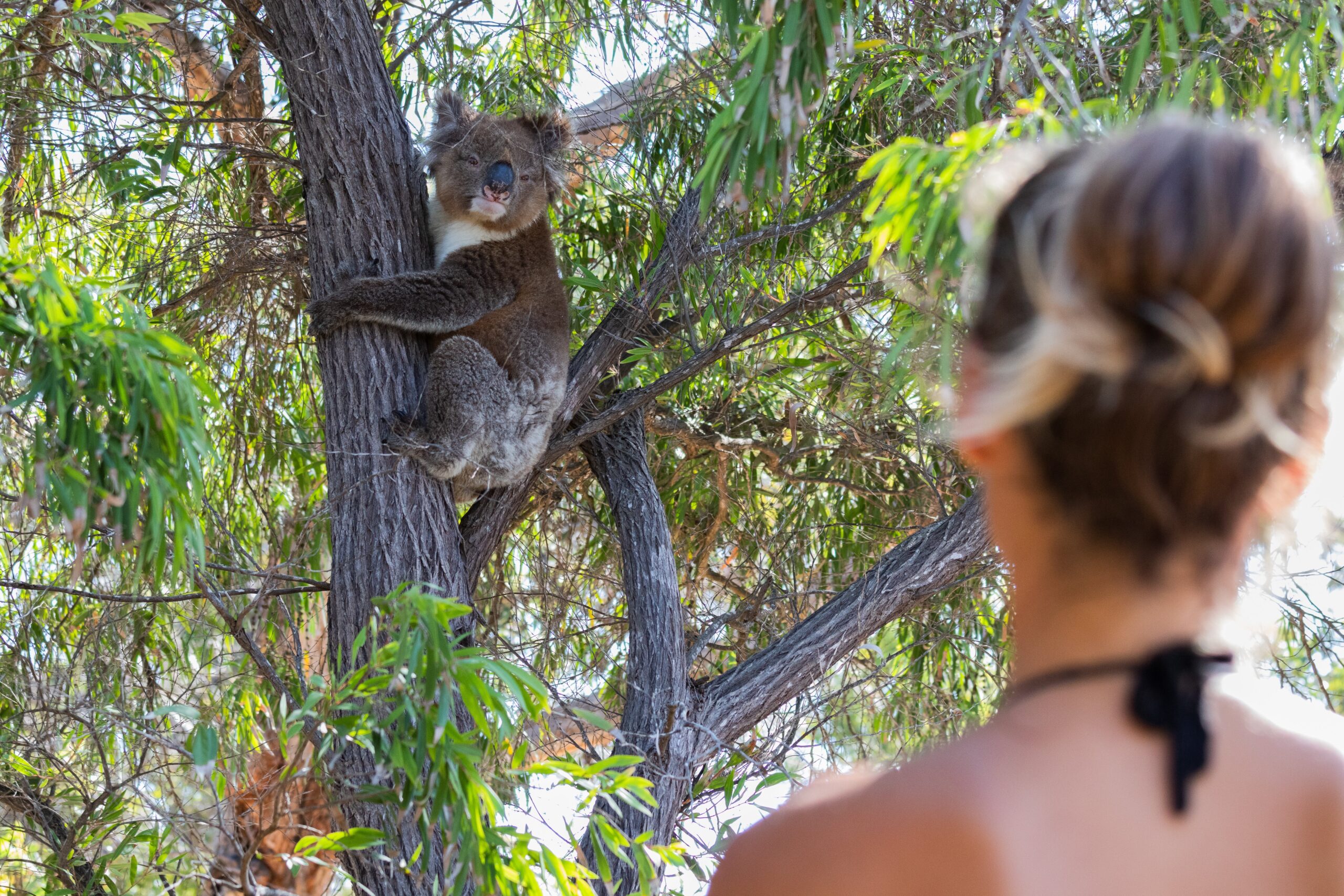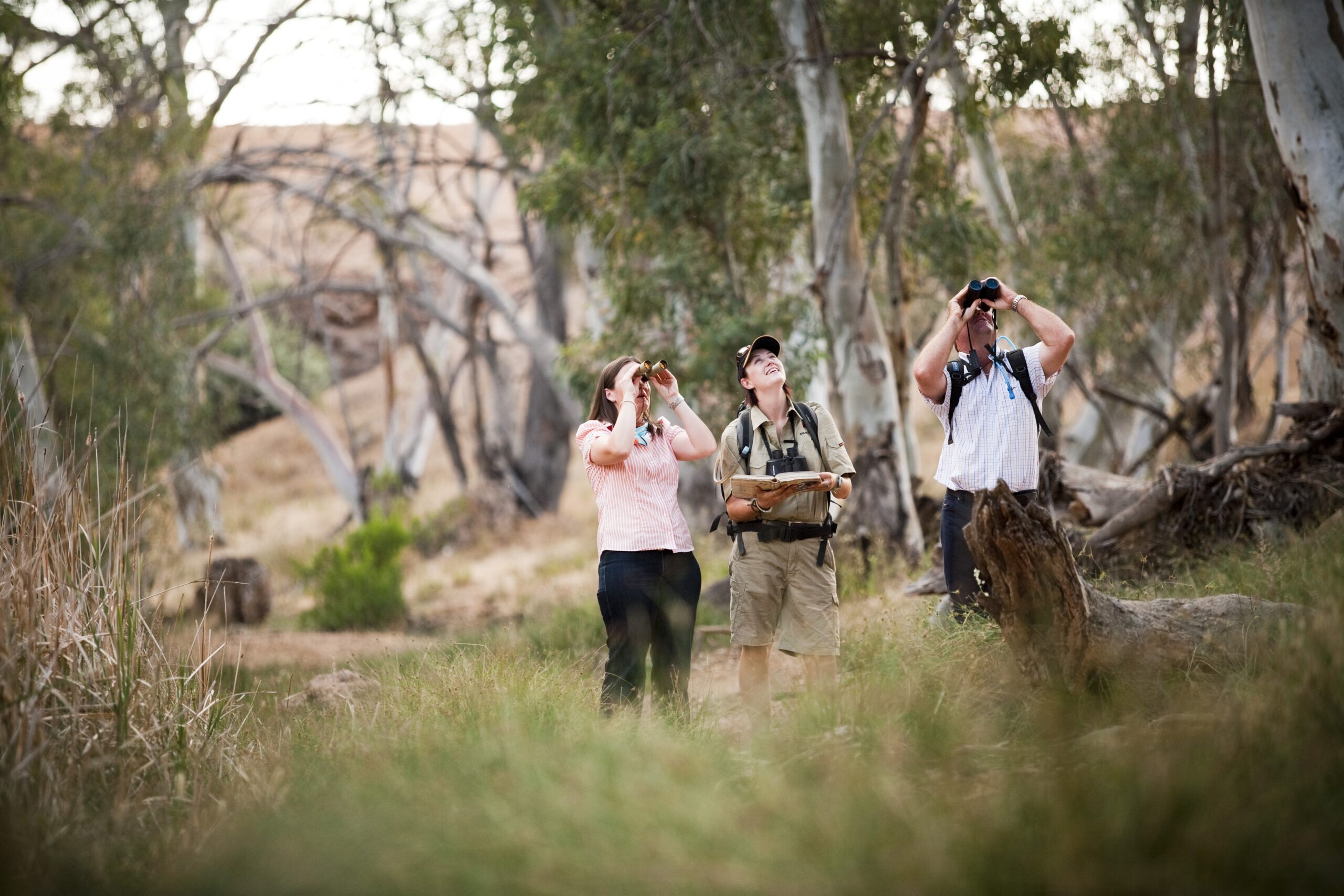Planning Your Rewilding Adventure: Questions to Ask Tour Operators about Positive Impact Projects
by Alex Malcolm, Founder of Jacada Travel
As projects focused on rewilding continue to grow worldwide, Jacada’s travel designers are encouraging guests to embrace opportunities to support and participate in the resurgence of wildlife spaces. The Jacada team is excited about the growth of rewilding and our clients’ interest in it, but we’re not really surprised: What traveler who is intrigued by distant reaches and natural wonders wouldn’t want to do their part to ensure that wilderness thrives, biodiversity is restored, and conservation is approached comprehensively for the future?

In Jacada’s experience, there seems to be some confusion around rewilding and regeneration, and it’s worth untangling hype from actual opportunities for curious and well-meaning travelers to get involved. As bespoke travel designers, our team actively encourages clients to responsibly participate in hands-on rewilding and regenerative activities from habitat restoration to wildlife tracking and more: They can be illuminating, fun to be a part of, and beneficial to both the planet and travelers themselves. Aside from physical engagement, many travelers show their support by patronizing hotels whose preservation work genuinely makes a difference. Indeed, for many, simply staying at a Jacada-vetted property is a fantastic means of participating in rewilding, resulting in financial support.
We live in a system where demand drives reward, and it is only by recognizing places that really have an impact that Jacada Travel and its guests can make a difference.
When it comes to encouraging and supporting regenerative and rewilding experiences in travel, asking the right questions can make a huge difference. Queries might be as simple as requesting details of the positive impact of wilderness restoration projects or may go much deeper by asking how they might be able to get physically involved on the ground in a responsible and significant way. We live in a system where demand drives reward, and it is only by recognizing places that really have an impact that Jacada and its guests can make a difference.

Here are some questions we would love to receive from clients about rewilding and regenerative travel:
Can rewilding be part of travel without being the focus of the entire journey?
Absolutely. In the initial phase of planning a trip, rewilding and positive impact efforts might not be an immediate priority for some. But once guests arrive at a destination and discover that activities have been planned to connect them closely with local communities and the environment, they often find those to be the most rewarding parts of a tour.
Rewilding is fascinating work, and there are more and more opportunities for travelers to participate. In South America, for instance, extensive rewilding projects are underway in Brazil, Argentina and Chile, including efforts to increase biodiversity by reintroducing species to former farmlands. In Indonesia, guests make a difference at Bawah Reserve, a gorgeous private island paradise offering an ethical marine conservation dive to help transplant and preserve coral or aid in cleanups of ghost fishing nets. At Wilderness Bisate’s tree nursery in Rwanda, travelers work with a dedicated agronomist to learn about reforestation, with hands-in-the-soil participation including planting saplings of their own.

How do you ensure that the hotels and projects Jacada works with are genuine?
We recently added a Positive Impact Coordinator to the Jacada team whose role is to ensure that the experiences we offer genuinely look after places and their people. The Positive Impact Coordinator also helps our team and guests understand the impact they are making by traveling to specific destinations and projects. We always look for ways for guests to support or participate in rewilding, the better to broaden their experiences and return them home knowing that they have participated in something truly positive.

How is Jacada vetting positive impact efforts and, consequently, where travelers spend their money?
Some of the results of regenerative tourism and positive impact tourism are obvious straight away, while others might require a keener eye. Take a lodge that strives to protect a sizable spread of land or uplift a community: It would follow that the property would staff people from the community to bring a local richness to its hospitality and enable travelers to experience local culture and benefit the region economically. We pay attention to the dynamics and notice if the lodge employs locals at all levels, and if the staff speaks warmly and enthusiastically about the authenticity of the hospitality they provide. It matters greatly to Jacada that guests can clearly see whether properties are integrated with the community and the local environment or if their relationships seem more for show.

Is there anything left for clients to do when traveling with Jacada?
Yes! Keep asking questions. Our goal is always to awe travelers by exposing them to fascinating experiences, people and sights, but we never underestimate the power of curiosity. Just by expressing an interest, guests can ensure that properties strive for positive impact and continue moving in the right direction.
The power of questions from guests and tour operators can take on a life of its own, developing a mood or a movement that brings about change.
Managers and guides are the best sources for intentions and results on the ground, and part of their job is to engage with guests. When you enquire on the status of a property’s rewilding efforts, be sure to ask what the work they do means to them and what guests can bring to their efforts. Happy staff can be a good sign that rewilding projects are being carried out properly and guests’ interest in these initiatives is appreciated. Also, don’t underestimate the importance of asking about results and what the next phase of their projects might be. The power of such questions, from guests and tour operators, can take on a life of its own, developing a mood or a movement that brings about change.

Where do the responsibilities for rewilding lie, and what rewards does it have for the environment?
The “environment” is a big place, and different entities of the travel industry must work together to protect it. It is not about competition; it’s about collaboration. Travelers and tour operators alike can share the responsibility and labor of looking after places that are really precious. If both approach nature with care and complexity, give it the support it needs through rewilding, and inspire involvement from local people and communities, nature can regenerate itself. That’s the hopeful part of what rewilding is all about.
